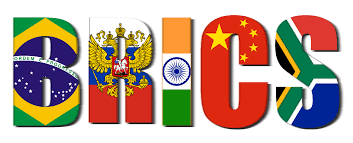“The BRICS bloc remains open to the participation of like-minded partners in its cooperation process, and we welcome Palestine’s involvement in dialogue mechanisms, so that we can advance together toward a more just and equitable global system,” Guo Jiakun stated in Beijing on September 25, 2025. With these statements, China underscored its support not only for the inclusion of new members, but also for a vision of international governance less dependent on the West and more oriented toward the Global South.
The Palestinian application—formally presented by Ambassador Abdel Hafiz Nofal in Moscow—was sent to the countries currently constituting the BRICS bloc, which expanded in January 2024 with the admission of Egypt, Ethiopia, Iran, the United Arab Emirates, and Saudi Arabia. In total, BRICS now brings together around half the world’s population, controls more than 40% of global crude oil production, and consolidates itself as an alternative economic, political, and diplomatic pillar to the traditional arenas led by the United States and the European Union.
China emphasized that Palestine’s participation could begin as an observer or invited country, a formula that would allow progress on Palestine’s cooperation agenda and international projection while the bloc’s internal mechanisms are adjusted for eventual full membership. This opening was valued in Ramallah as “a fundamental strategic step for the Palestinian cause to gain weight in multilateral forums and in the development of South-South alliances.”
This support comes amid persistent tensions in the Middle East and the intensification of the Palestinian-Israeli conflict, especially after recent episodes of violence in Gaza and the West Bank. China’s support coincides with a Palestinian diplomatic offensive aimed, alongside seeking full United Nations recognition, at joining alternative international mechanisms where Western veto power is weaker.
International analysts warn that Beijing’s stance is both a sign of solidarity with Palestine and a piece of a broader strategy to challenge Western hegemony. For China, the expansion of BRICS and the inclusion of Arab and Muslim countries strengthen its leadership in the Global South and reinforce its influence in regions where energy, commercial, and diplomatic interests converge.
The final decision on Palestine’s acceptance now lies with the rest of the bloc’s members, including such diverse actors as Brazil, India, South Africa, and Russia, as well as the recent additions. In every case, consensus will play a decisive role in a process that could durably transform the architecture of Palestinian international representation.
In short, China’s signal reshapes the alliance landscape and represents a major boost for a Palestine seeking prominence beyond traditional frameworks. Under the umbrella of BRICS, the Palestinian cause could find new avenues for its economic, political, and diplomatic development, backed by the steadfast support of one of the world’s leading powers.”
